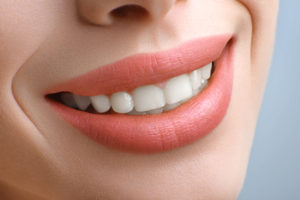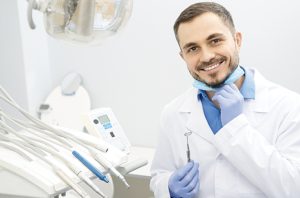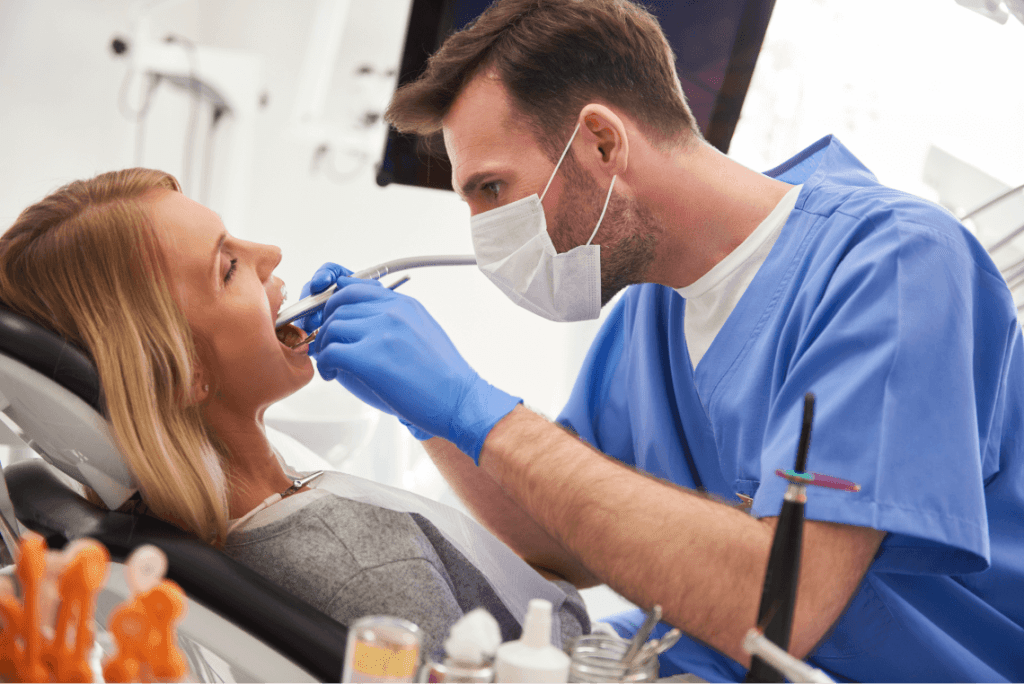An estimated 50 million people around the world have dementia, and approximately 10 million new cases are added each year. Dementia is a condition that impacts mostly older people, but according to the World Health Organization “is not a normal part of aging.” The most common form of dementia is Alzheimer’s disease, a condition that is both irreversible and progressive. In recent years, the Alzheimer’s Association has noted that cases of Alzheimer’s disease in the United States seem to be growing at incredibly rapid rates. Among the potential causes: poor oral health. A 2019 study makes a strong case for the connection between oral bacteria and dementia.
How oral bacteria impacts the body
The mouth is home to billions of bacteria, representing more than 700 different bacteria species. Some bacteria are beneficial, but many are harmful. Some of these bacteria can cause cavities and other oral health issues, such as gingivitis, tooth loss, and more.
Poor oral hygiene has also been linked to health conditions outside of the mouth — such as heart disease, diabetes, depression, complications during pregnancy, and diabetes. This is because harmful oral bacteria can enter the bloodstream, traveling to other parts of the body and causing or contributing to other health problems.
Recently, poor oral hygiene and oral bacteria have even been linked to dementia and Alzheimer’s disease.
Can poor oral health lead to dementia?
While several studies in the past have suggested a link between oral bacteria and dementia, a 2019 study from the University of Louisville School of Dentistry seems to have drawn a more conclusive result. The study compared brain samples of people roughly the same age, with and without Alzheimer’s disease. The patients with Alzheimer’s disease had significantly higher rates of a bacterium known as Porphyromonas gingivalis in the brain. The study then experimented on mice to demonstrate that this bacteria can make its way from the mouth, where it originates, to the brain. Once P. gingivalis is in the brain, it releases toxins called gingipains, which destroy nerve cells and potentially cause memory loss and even Alzheimer’s.
The same study also found that the P. gingivalis bacteria may play a role in aspiration pneumonia and rheumatoid arthritis.
Individuals who already have a higher risk of dementia, such as a family history of the condition, should be especially concerned with maintaining good oral hygiene.
What bacteria is linked to Alzheimer’s?
Porphyromonas gingivalis is the form of bacteria associated with gum disease (periodontitis). Several studies have found the presence of the bacteria P. gingivalis in the brains of Alzheimer’s patients. This bacteria is quite common, and many people start to develop it in the gums as teenagers. Four out of five people under the age of 30 have high levels of the bacteria in their gums.
For most individuals who maintain a healthy oral hygiene routine, the presence of the bacteria isn’t dangerous. Unfortunately, those who let their oral hygiene lapse are prone to inflammation, which leads to weakened gum tissue and allows the bacteria to enter into the bloodstream. Additionally, P. gingivalis can negatively interact with the benign bacteria in the mouth (Campylobacter rectus and Prevotella melaninogenica), causing other harmful side effects.
Are the results conclusive?
The original study looked at only 53 brain samples. A much larger sample size is needed as a follow-up to this study. The next step is to test whether a drug can block this harmful bacteria to stop dementia from occurring or at least slow it down.
It should be noted that some have argued that individuals with dementia are less likely to take care of themselves, including some tasks like brushing their teeth, which is why they are showing higher rates of P. gingivalis. Still, now that scientists understand that this harmful bacteria causes damage in the brain, the link between oral bacteria and dementia seems strong.
Oral hygiene is important
Regardless of whether you have a high risk of dementia or not, good oral hygiene is vital for everyone. Taking care of your teeth and mouth is part of taking care of your overall health. Along with brushing and flossing twice daily, you should see your dentist for check-ups regularly. Your dentist is your first line of defense against serious oral hygiene issues.
Need to schedule a dental appointment? Visit our directory to find a certified pain-free dentist near you!
















